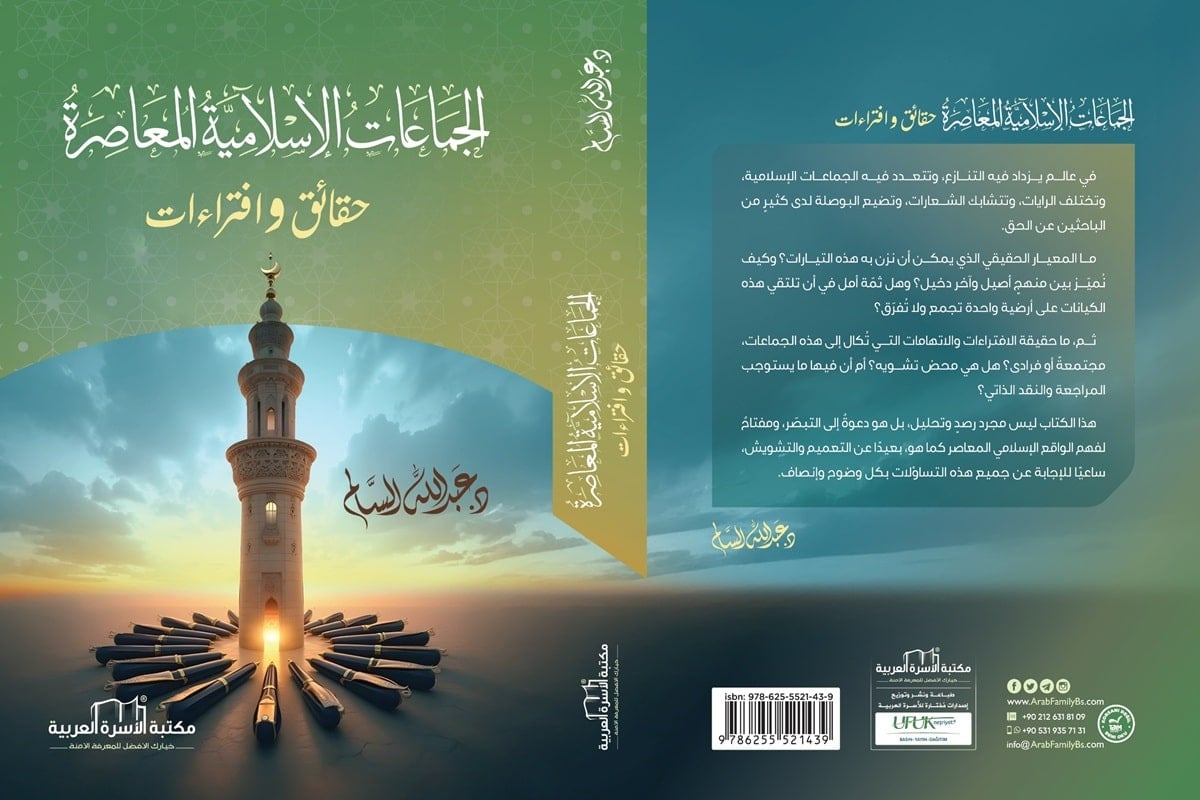
I searched Google for the phrase “jihad in the way of Allah”, hoping to find what contemporary scholars of Sharia are saying about jihad in our era—especially given how Muslims, both people and governments, are closely following the ongoing massacres in Gaza that shake the human conscience.
From childhood through to my PhD, I was taught—and I continue to believe—that jihad is a firmly established religious obligation. It is fard kifayah (a communal obligation) when it comes to offensive jihad (jihad al-talab), and fard ‘ayn (an individual obligation) in the case of defensive jihad (jihad al-daf‘).
Jihad According to Google
To my surprise, none of the results reflected these basic Islamic teachings. The first page of Google was filled with the following types of results:
First Result: Jihad Is Impossible
The top result was an article on Al Jazeera’s website by a professor of Sharia, according to his own introduction. He argued that for jihad to be considered legitimate today, it must answer six complex questions: why, how, where, when, with whom, and against whom.
Second Result: Jihad Is Extremism
Another lengthy article—more like a political and security report than a scholarly piece—traced jihad from the Meccan era to the present day. The author concluded that today’s jihad is nothing but rejected extremism, allegedly invented by modern fundamentalist figures like Abul A‘la Maududi, Sayyid Qutb, and Hassan al-Banna.
But such a view isn’t surprising when we learn that the writer is an American professor of political science at Florida Atlantic University. The Washington Institute for Near East Policy (AIPAC-affiliated) describes him as a leading expert on Salafism, radical Islam, Middle Eastern politics, and U.S.–Arab–Israeli relations. What a mix!
Third Result: Jihad Has Changed
This article highlighted a quote attributed to Jamal al-Banna, claiming that jihad does not mean dying for the sake of Allah, but living for the sake of Allah. He presented this view in a book he wrote on jihad.
Now, Jamal al-Banna is the brother of Hassan al-Banna, founder of the Muslim Brotherhood—Hassan al-Banna, who, according to the American expert above, promoted extremist and rejected jihad. So this article was not merely a critique of Hassan al-Banna from a Muslim outsider, but from someone inside the Banna household. That, apparently, makes the rebuttal more effective and dismissive.
Fourth Result: Jihad Is the Struggle of the Self
Another Al Jazeera article, authored by a bearded writer who appears devout and identifies himself as a student of Sharia, shifted the focus entirely to the other meanings of jihad—excluding the well-known one. He lamented, “Many Muslims today have gone astray by restricting jihad solely to armed struggle.”
God guide those many Muslims who now roam the streets wielding their swords in the path of Allah!
More Obstacles Ahead
When I opened the first article, I found that the Sharia professor added even more conditions for practicing jihad today. He wrote:
“Answering these six questions today is not solely the domain of jurists. Rather, it requires a multidisciplinary effort, as the complexity of life and reality necessitates layered and multifaceted answers, unlike the simpler fatwas issued by jurists in the past.”
Complication Leading to Paralysis
Why is this professor making jihad so difficult for us—especially in a time when we are free to practice all major Islamic rituals except jihad? In a time when we need jihad more than ever?
This type of complication might be understandable during the Umayyad Caliphate, for example, when a Sharia scholar might have sought to temper the zeal of overly eager Muslims in order to encourage attention to other acts of worship—or perhaps to give the poor non-Muslim nations a breather—if the scholar held liberal tendencies.
But to place obstacles to jihad in our time? Where are the lines of zealous volunteers rushing off to jihad, such that the professor feels obliged to tell them, “Hold on, you need to pass through six filters before you’re allowed”?
Even if he had set only one filter, only a rare few would pass—and once they do, they would likely be taken straight to counterterrorism for a 15-year investigation.
Who Is Behind the Obfuscation of Jihad?
Why is jihad being selectively suppressed in search results, in publishing, and on platforms meant to inform?
Some of the reasons include:
- The Rise of “Cute Islam”
This is the apologetic strain of Islam, which feels guilty or embarrassed about Islamic rulings when viewed through a Western cultural lens. As a result, this current is favored by international institutions, global publishing platforms, social media algorithms, and search engines. Its themes of peace, coexistence, and love are deemed “acceptable,” while anything else is sidelined or censored as incitement or extremism. - Digital Control Over Content
What appears in search engines is governed by so-called “quality content standards” and SEO rules, which reflect the preferences of those in power. That includes overt bias towards certain ideas and the marginalization of others—among the latter: jihad in the way of Allah.
Digital Domination of Thought
In 2020, a documentary titled The Social Dilemma was released. It featured interviews with tech experts who helped design platforms like Google and Facebook.
They warned about the addictive nature of these platforms and their ability to manipulate what users see and think. This is, in fact, a form of digitizing the modern human being.
Tristan Harris, former Google ethics designer, said in an interview:
“People think they choose what they watch on YouTube. They don’t. 70% of what they watch—where over 2 billion people spend their time—is recommended by YouTube’s algorithm.”
He added:
“There are governments that can manipulate how these recommendation systems work.”
And I would add: if governments can do it, then other actors certainly can. Welcome back to the world of “conspiracy theories.”
So now I ask you: what other factors do you think contributed to the erasure of jihad from public discourse in our time?
I’ve tackled this topic from other angles in my book Contemporary Islamic Movements, particularly in the chapter on the relationship between terrorism and jihad.
But here, I welcome your thoughts in the comments section below.


